CHIC Shanghai has emerged a must-attend event for fashion creators, where innovation, sustainability, and Chinese design converge to shape the future of the industry. From August 27 to 29, exhibitors and participants from over 20 countries gathered at Shanghai Convention Center to discover the country’s latest creations and innovations. As Jiao Pei, vice president of the China National Garment Association, aptly pointed out: “CHIC Shanghai is probably the largest event of its kind in China, and even in the global apparel industry.”
Assessing the Chinese fashion market
To gain a better understanding of the challenges facing the Chinese fashion market, FashionUnited first spoke to Pei, who indicated that domestic sales in the textile and garment sector reached approximately 4.5 trillion Yuan (635 billion dollars) in 2023, while exports totaled 170 billion dollars. However, he pointed out that these figures are still estimates, as the sheer size of China makes it difficult to accurately capture market data. This is particularly true for SMEs and start-ups, whose data is sometimes difficult to access.
CHIC Shanghai, a fashion industry powerhouse
China’s progress in creative design, materials and cultural emancipation has been particularly significant over the last decade. It is against this backdrop that CHIC Shanghai has emerged as one of the most influential events for companies looking to extend their reach and stay at the forefront of the fashion industry. “Through CHIC Shanghai, we aim to help companies leverage these strengths to create high-quality products and expand into international markets,” asserted Pei. The show attracts a wide range of exhibitors and participants, offering companies the opportunity to make contact with buyers, suppliers and other industry players. Held twice a year, CHIC Spring and CHIC Autumn showcase the latest innovations and trends in the textile and fashion sector.
CHIC Autumn 2024’s significance
While CHIC Spring is larger in scale, occupying approximately 126,000 square metres of exhibition space compared to CHIC Autumn’s 53,000 square metres, CHIC Autumn 2024 offered a diverse range of activities and opportunities for attendees, from fashion shows featuring the latest collections to insightful discussions and networking events. Key activities included:
CHIC Shanghai also attracted significant media attention, with over 40 journalists from mainland China and overseas covering the event. This includes international outlets like the Korean fashion TV media Fashion Insight.
“While we previously faced challenges in competing with Western countries and East Asian neighbours, China has now emerged as a global leader in clothing manufacturing,”
What trends are emerging?
Upon entering CHIC Shanghai, attendees could immediately grasp the latest trends shaping the Chinese fashion industry. The exhibition’s prominent displays, early-morning fashion shows, and discussions highlighted the emergence of three key trends: New Chinese Style, sustainable fashion, and the development of a Chinese pool of national designers.
The rise of New Chinese Style: A trend shaping the fashion industry
China’s fashion landscape is indeed witnessing the emergence of a powerful new trend: New Chinese Style. This movement fuses traditional Chinese aesthetics with contemporary design, creating a unique and culturally resonant aesthetic. New Chinese Style incorporates traditional Chinese elements such as embroidery, colours, prints, patterns, and symbols into modern fashion designs. A blend of heritage and innovation, which appeals to both domestic and international consumers.
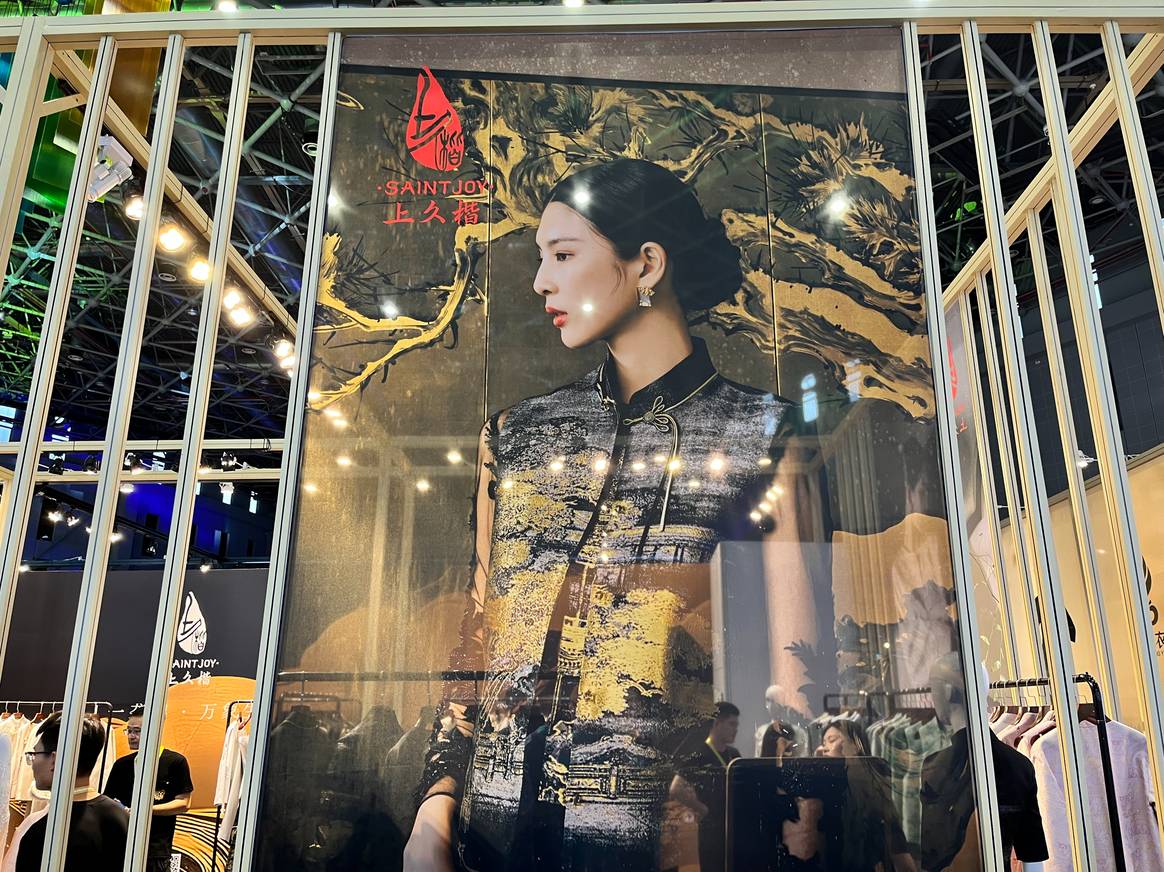
Saint Joy, a prominent brand at CHIC Shanghai, is a prime example of New Chinese Style. The brand offers a curated collection of high-end silk garments that showcase the essence of this trend, with price points ranging from 6,000 (846 dollars) to 8,000 RMB (1,128 dollars) on average. The popularity of New Chinese Style has fueled significant growth in the Chinese fashion market. Factories across the country have reported increased orders, indicating a thriving consumer base, and experts estimate that the market size for New Chinese Style products is expected to reach one billion consumers.
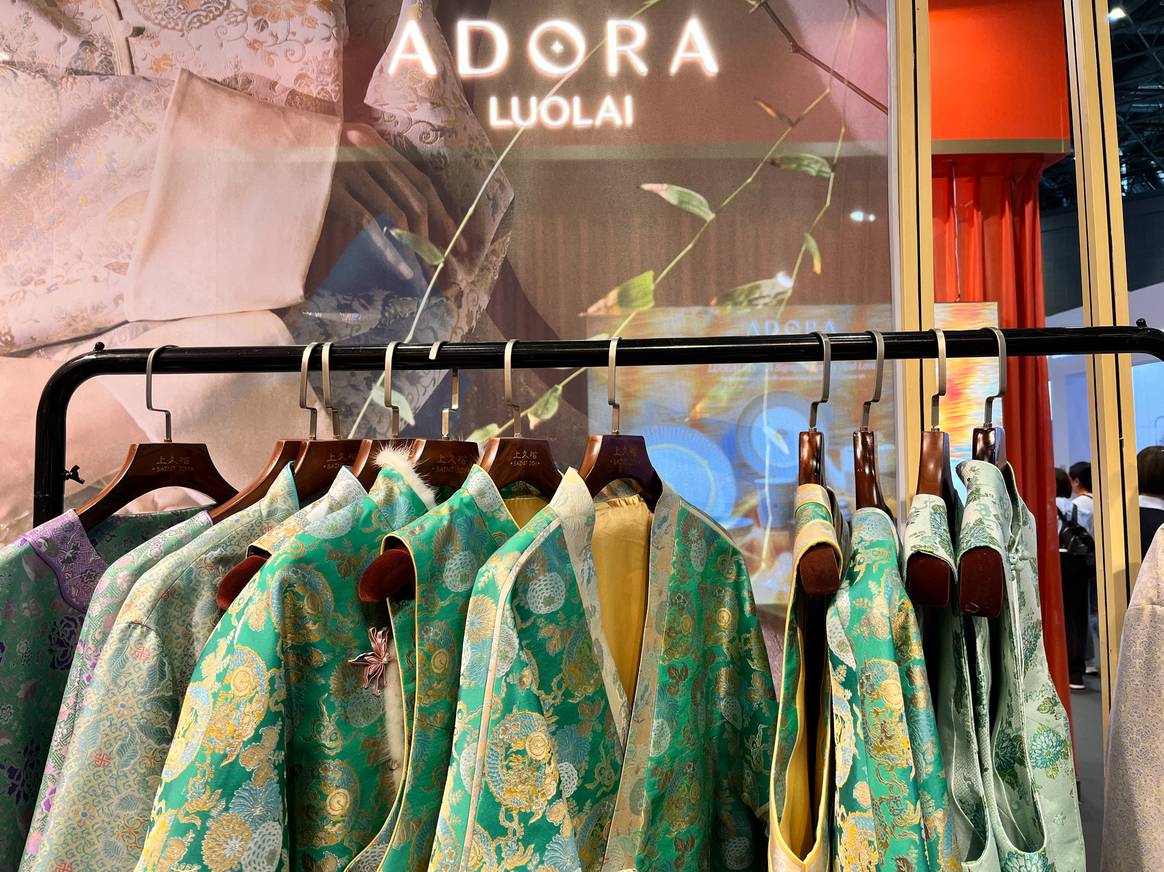
Sustainability and innovation
Beyond the aesthetic appeal of the New Chinese Style, sustainability emerged as a major trend at CHIC Shanghai. The aim behind initiatives such as Refashion, for example, is to showcase fabric recycling techniques and inspire a shift towards more environmentally-friendly production methods. In other words, to promote sustainable practices within the Chinese fashion industry. One of the main methods employed by Refashion is the re-use of unused materials, such as old flags, which are often discarded after events such as CHIC Shanghai. Here, these old flags are transformed into tote bags, demonstrating the potential of sustainable fashion.
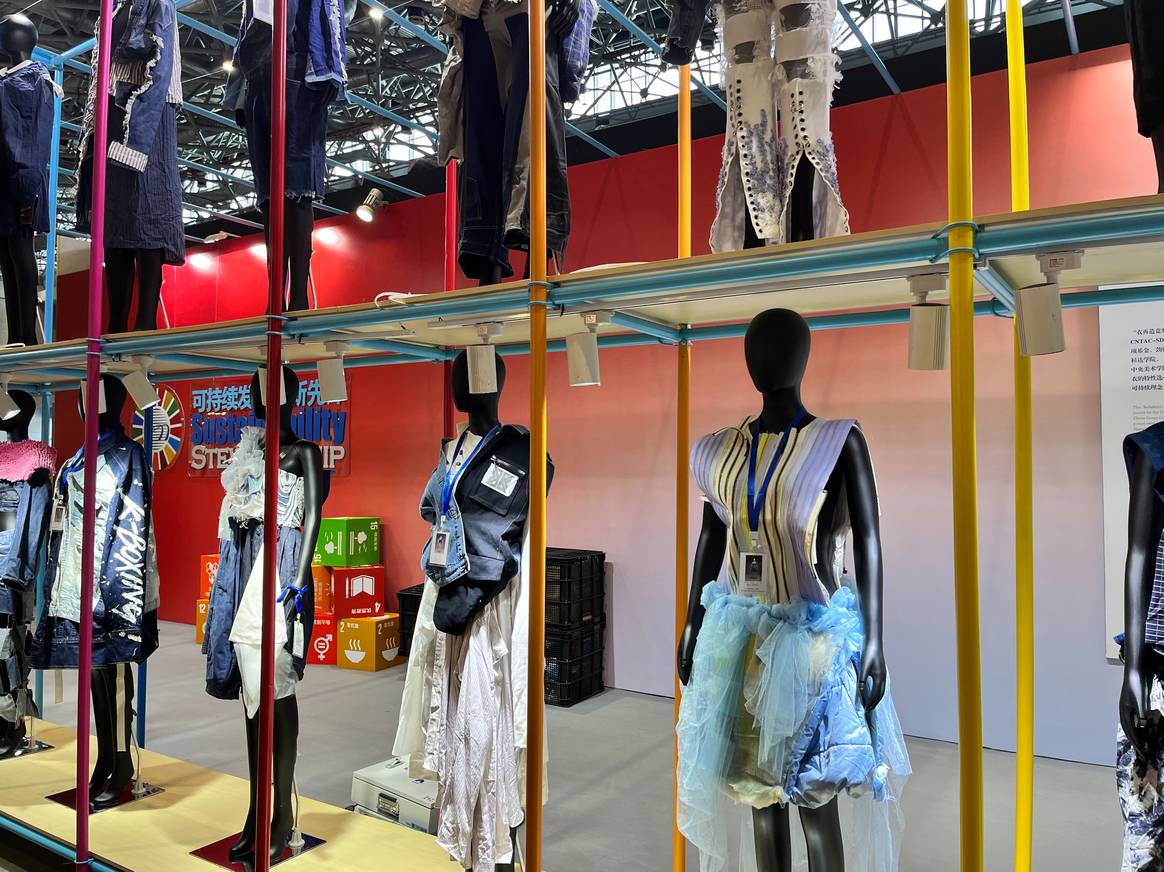
From manufacturing to original designs: The rise of emerging designers
The fashion show featuring outdoor clothing from Sanmen County sent out a clear message: while China used to rely on foreign designers, it is now actively developing its own pool of designers. Government support and initiatives have played a crucial role in developing Sanmen County’s production capacity, which now accounts for 60 percent of the country’s total outdoor clothing production. By providing resources to 206 companies, the government has strengthened competitiveness and encouraged innovation. Brands such as Lantu, Dixiang, Mansmoer and Velociraptor, who took part in the fashion show, confirmed the production of innovative and original designs in Sanmen. These emerging brands are also enjoying success, winning awards and forging partnerships with major players in the sector.
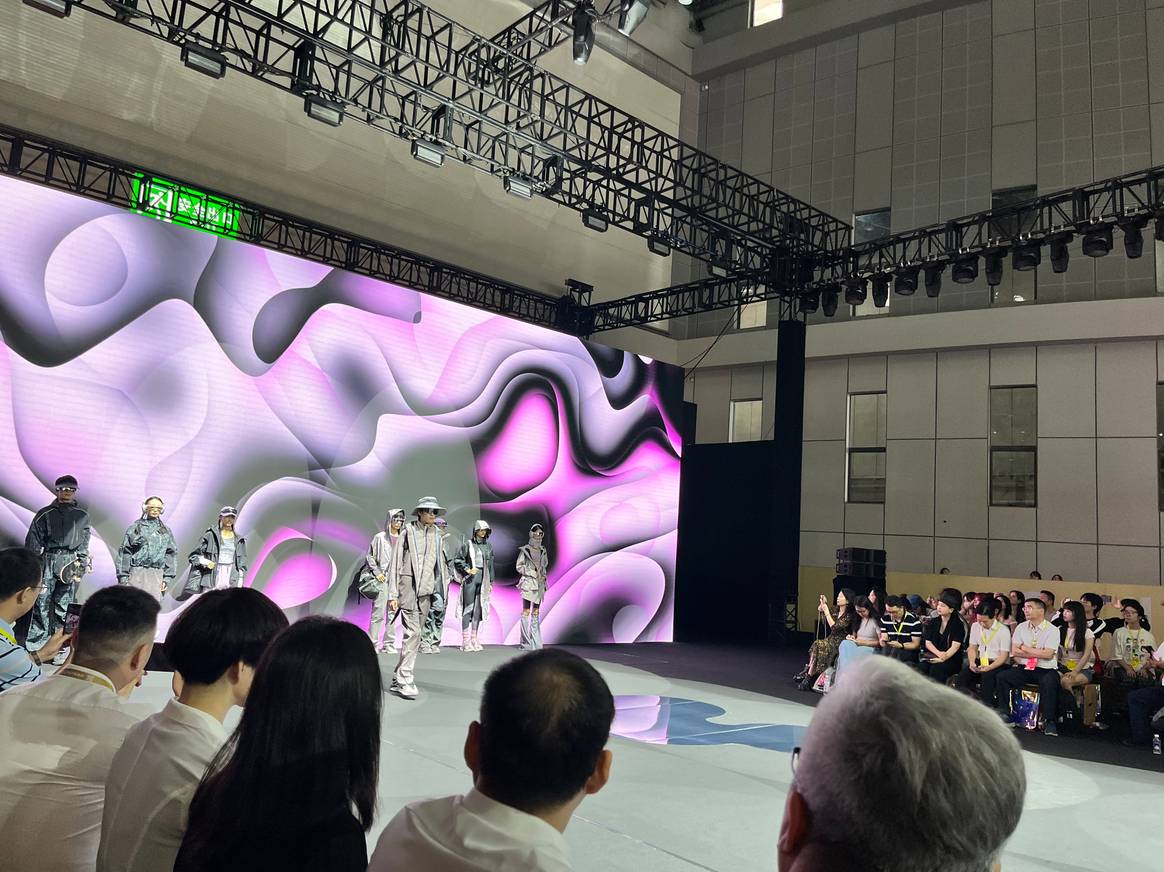
What about Tech?
Chinese technology companies can also make a significant contribution to the global textile market. CKLaser and Anoksoft Saas-PaaS are further examples of innovative solutions that can help companies around the world meet the major challenges facing the industry, and improve their competitiveness.
CKLaser: Optimising denim dyeing
CKLaser has developed a denim dyeing machine that offers a more sustainable and efficient alternative to certain European models. By utilising laser technology, this machine drastically reduces water consumption in the textile dyeing process, as well as the use of chemicals. These two key points improve process efficiency and mitigate health risks associated with manual labour. While a comparable machine already exists in Europe, particularly in Spain, CKLaser machines offer a significant price advantage due to the assembly of parts being carried out in China. Similarly, maintenance costs are more favourable due to the presence of engineering teams located in China.
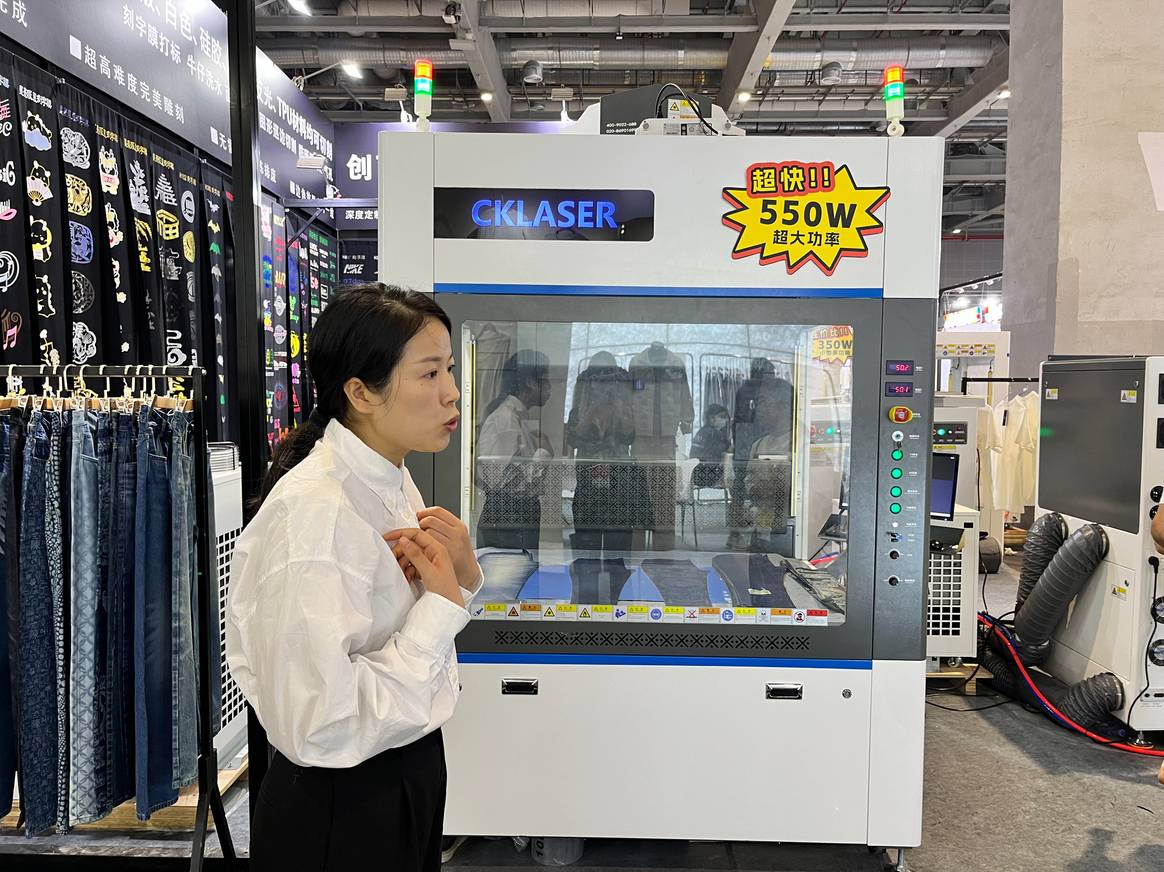
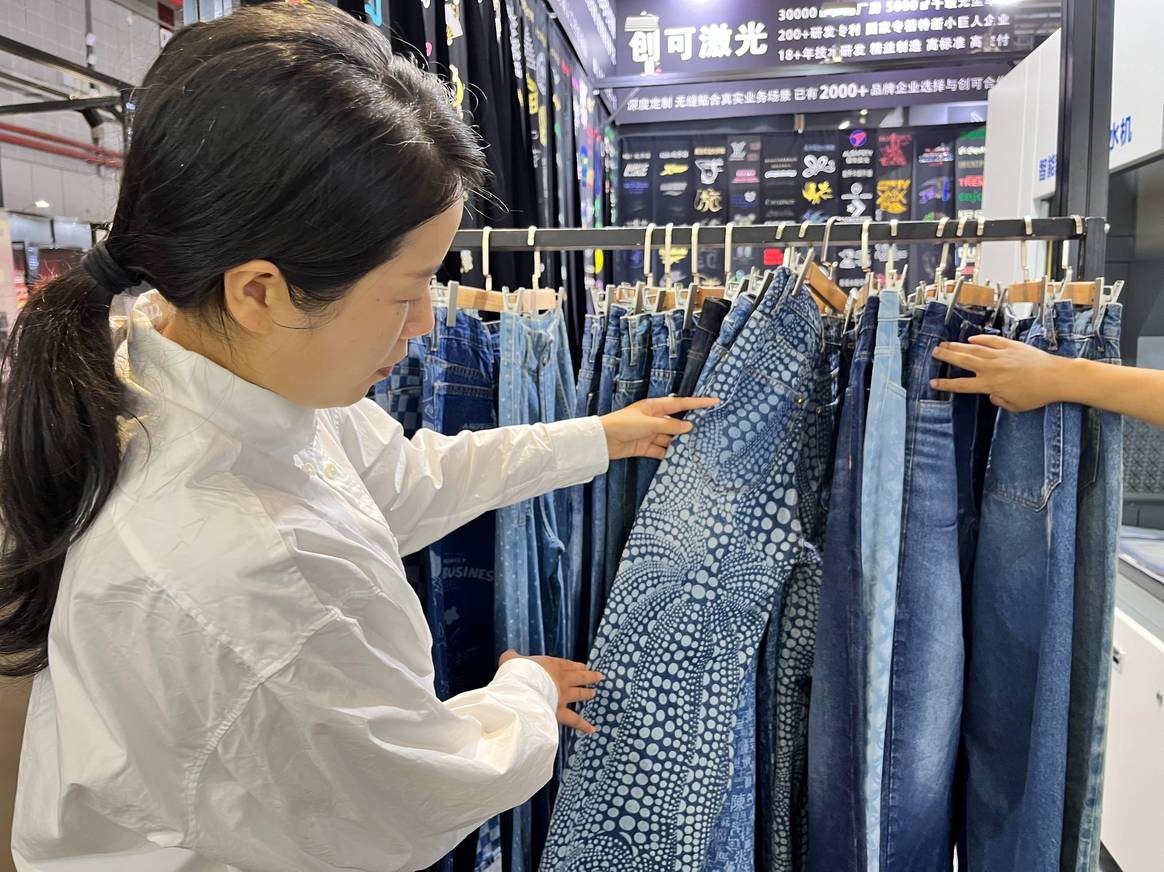
Anoksoft Saas-PaaS: A comprehensive solution
Anoksoft offers a comprehensive SaaS-PaaS ERP system, an all-in-one interface where companies can simultaneously manage their PLM, SCM, ERP, and MES systems. This technology allows for seamless integration of different systems, streamlining workflows, and reducing errors. Additionally, the platform enables brands to identify areas for improvement in supply chain management and product testing standards. This cloud-based solution relies on three Chinese cloud service providers: Alicloud, Huawei Cloud, and Tencent Cloud.
AI and 3D: Optimising efficiency in the fashion industry
The conferences highlighted the potential of AI and 3D in the fashion industry. By automating repetitive tasks and optimising processes, these technologies not only improve production and supply chain efficiency, but also enrich the customer experience through more immersive and personalised marketing materials. Boundaryless AI demonstrated how the technology can transform the creative process in the fashion industry, pointing out that one of the main challenges facing designers is the process of gathering inspiration, creating models and collaborating with different departments. By automating tasks such as pattern-making and materials sourcing, the company’s solutions enable designers to be more productive and explore new creative avenues. With Boundaryless AI technology, designers can now quickly create new designs, experiment with different materials and styles, and create realistic 3D models.
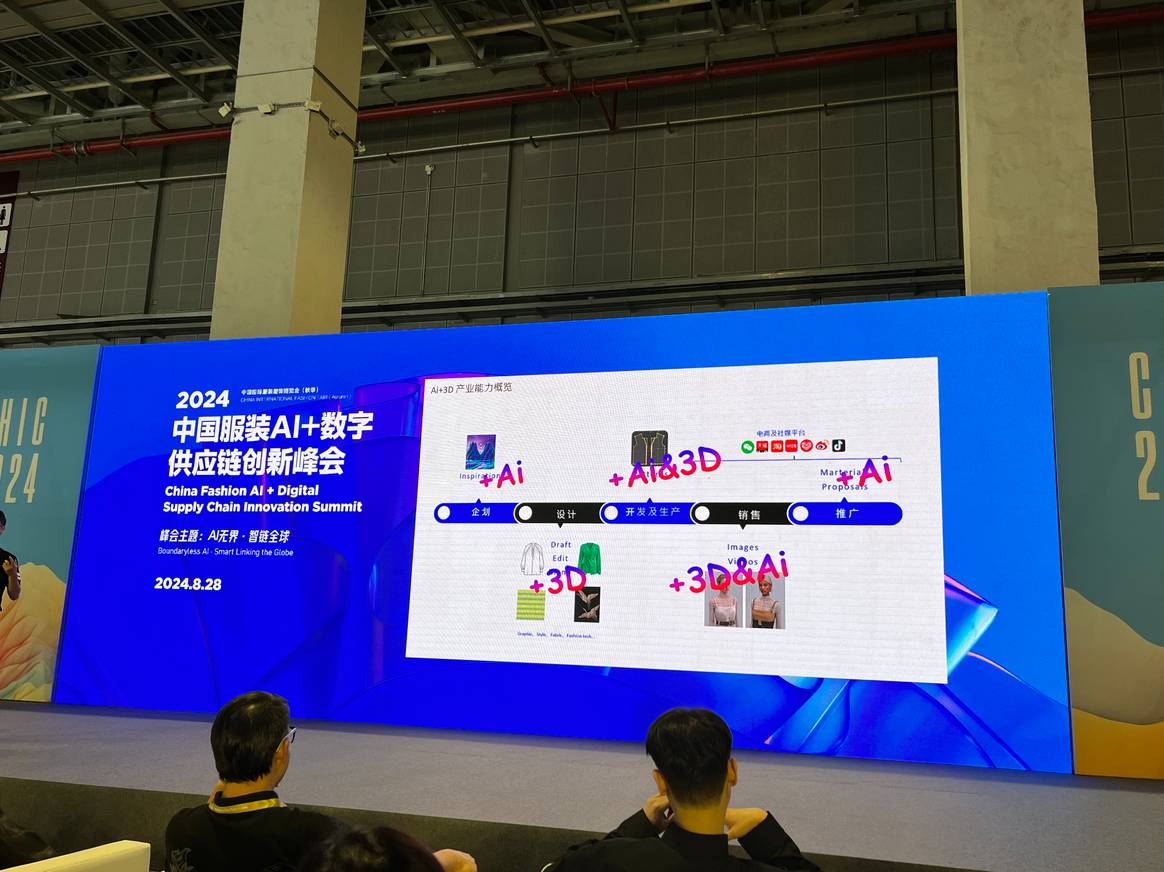
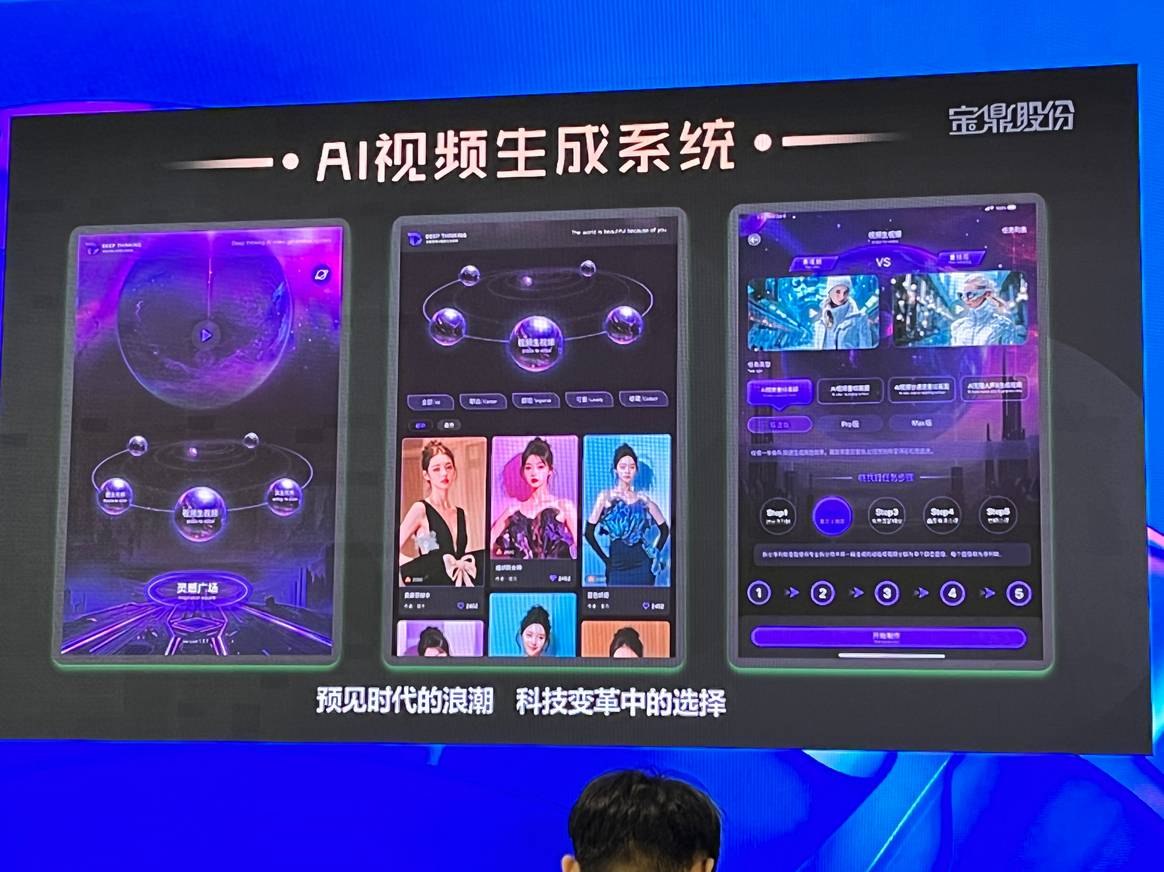
As a true barometer of the Chinese fashion industry, CHIC Shanghai once again established itself as a catalyst for innovation in the country’s industry. By showcasing the latest advances in AI and 3D, the event demonstrated that China is most certainly on its way to becoming a major player in fashion technology on a global scale.

